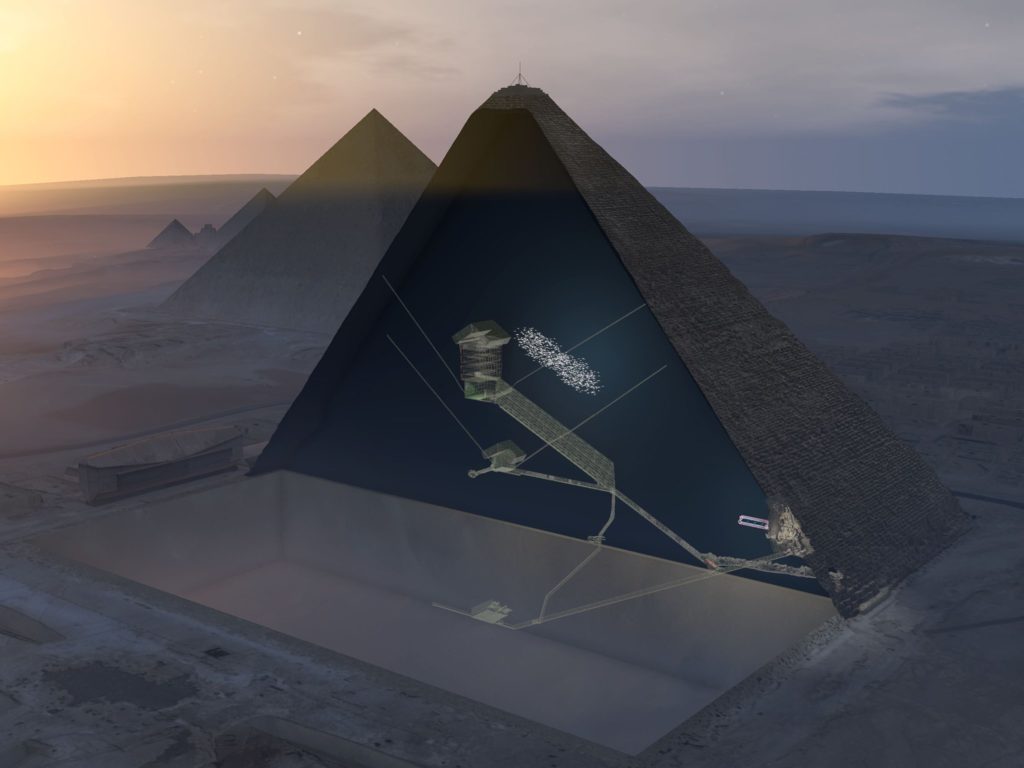
The Great Pyramid of Giza may be able to focus electromagnetic radiation into pockets of energy inside its network of internal chambers and underneath its base, a new study has suggested.
Theoretical research by a team of Russian scientists aimed to understand how the pyramid would respond to radio waves directed at it, with the goal of recreating its shape at a nanoscale.
But far from unveiling and harnessing some mystical property of the ancient structure, the scientists hope to use their findings in technological applications such as creating effective solar cells.
Speculation about the supposed function of Egypt’s pyramids has been prevalent since at least the early 20th century, and the structures have been linked with everything from aliens to the apocalypse.
As the oldest and largest of the Giza pyramids, the Great Pyramid constructed for Pharaoh Khufu thousands of years ago has drawn some of the wildest theories.
In their paper, the scientists acknowledge that “these amazing structures excite the imagination of people engendering various fables and baseless assumptions”.
This, they explain, is what makes it all the more important for scientists to use modern techniques to explore the real-life mysteries of the pyramids.
They used mathematical models to understand how light would react with a hypothetical nanoparticle shaped like the ancient wonder of the world.
“Egyptian pyramids have always attracted great attention,” said Dr Andrey Evlyukhin from ITMO University, one of the study’s authors.
“We as scientists were interested in them as well, so we decided to look at the Great Pyramid as a particle dissipating radio waves resonantly.”























